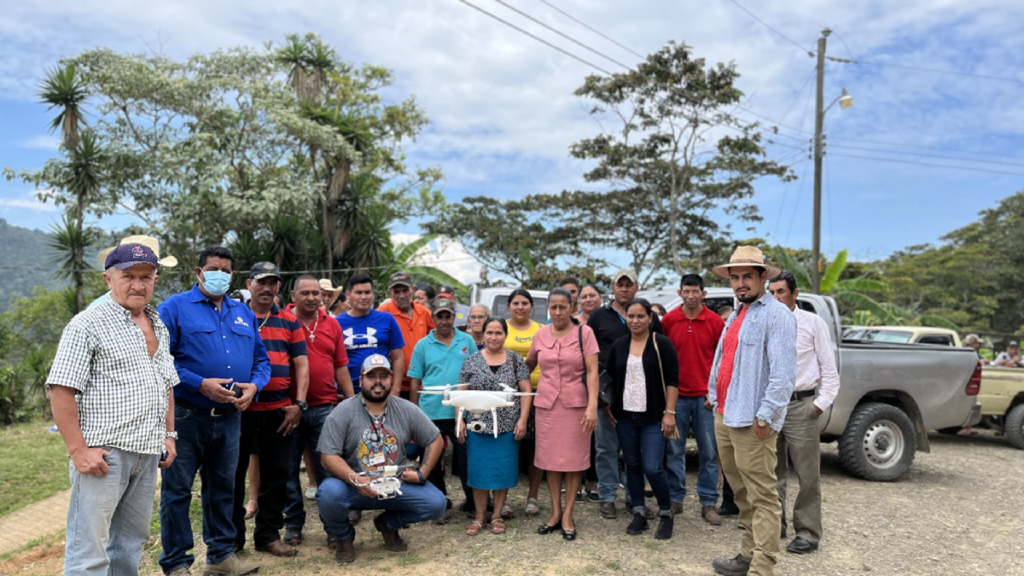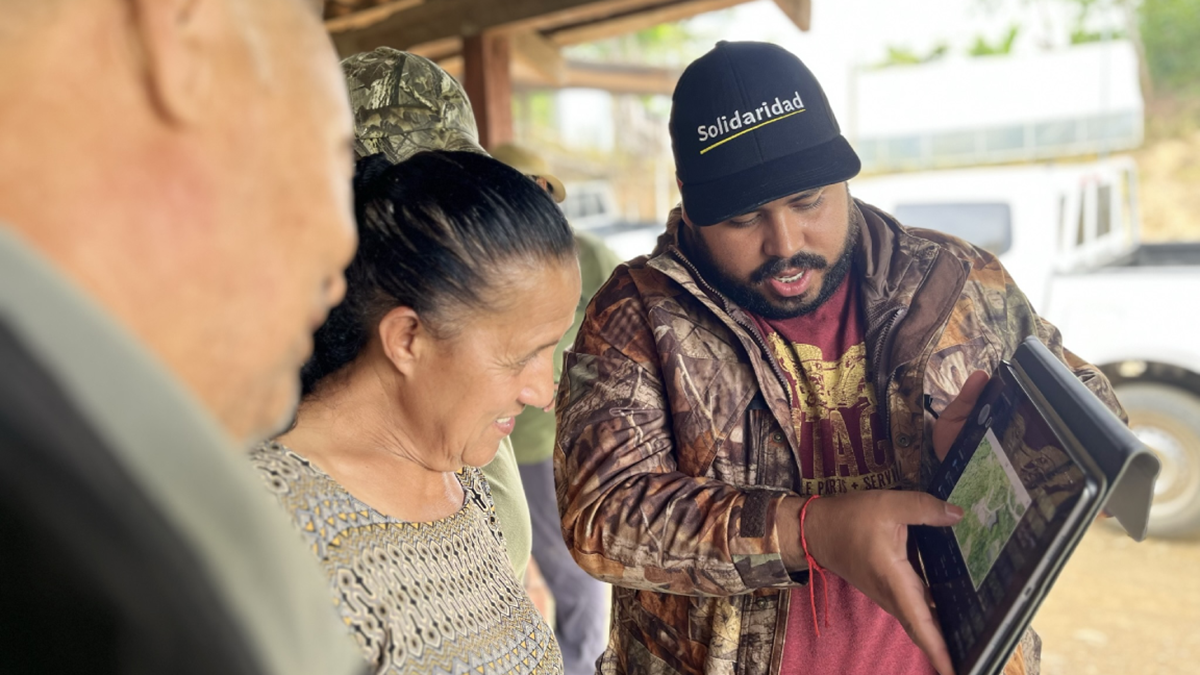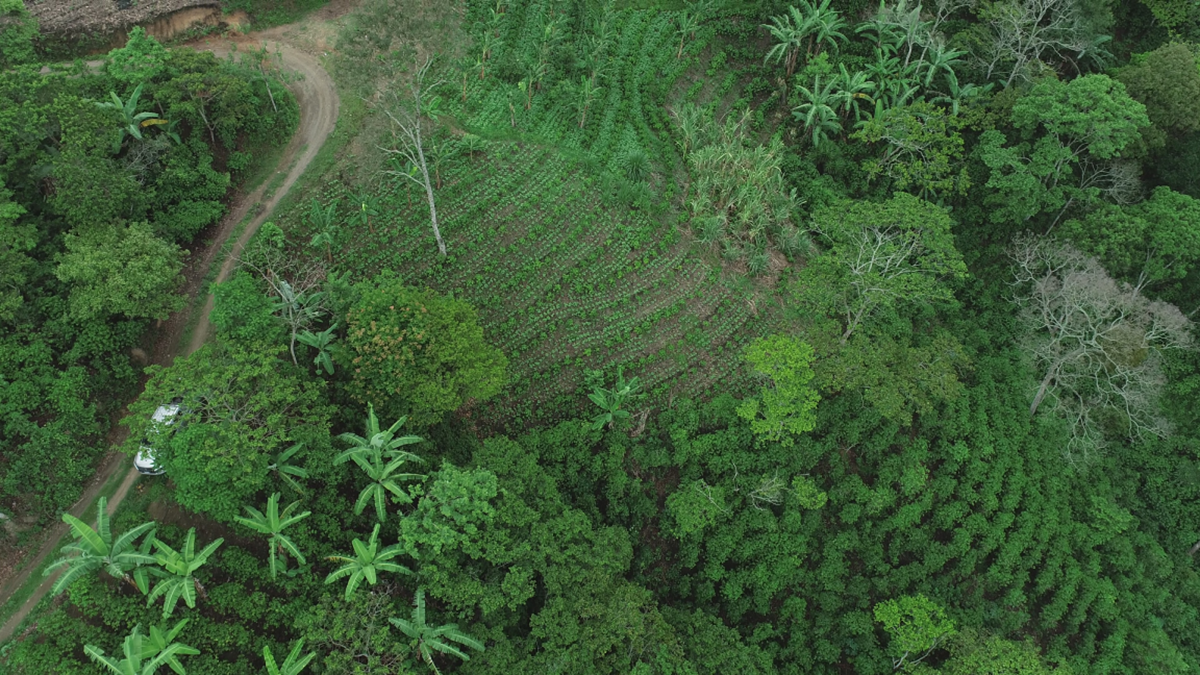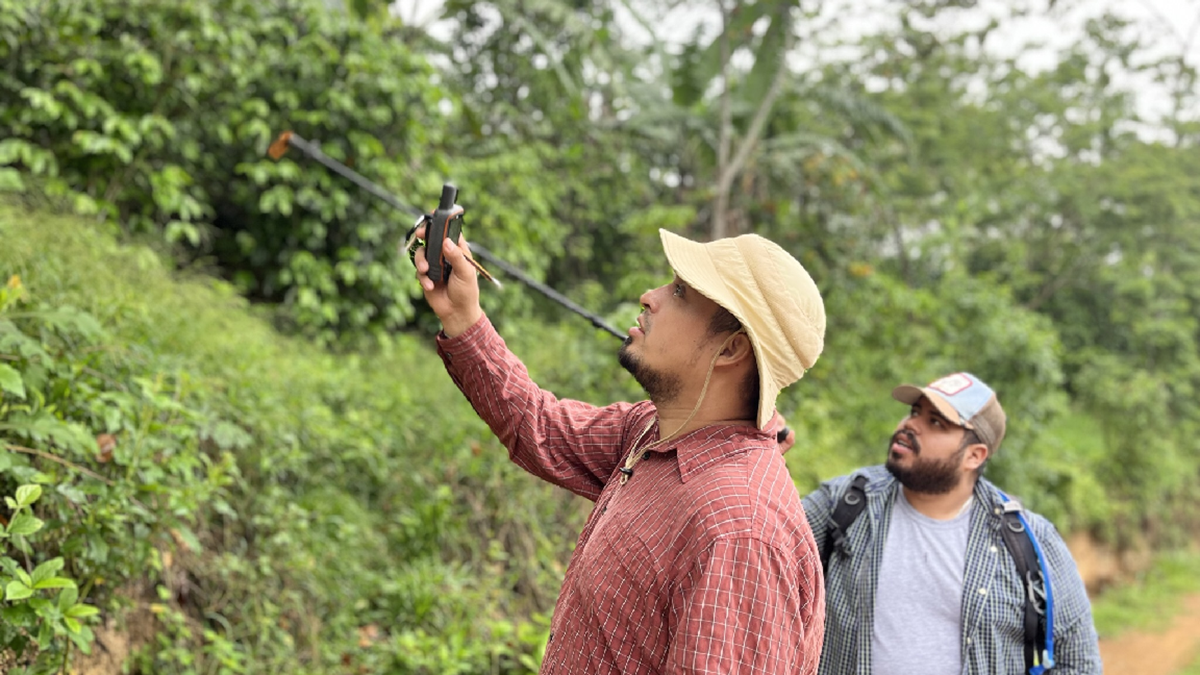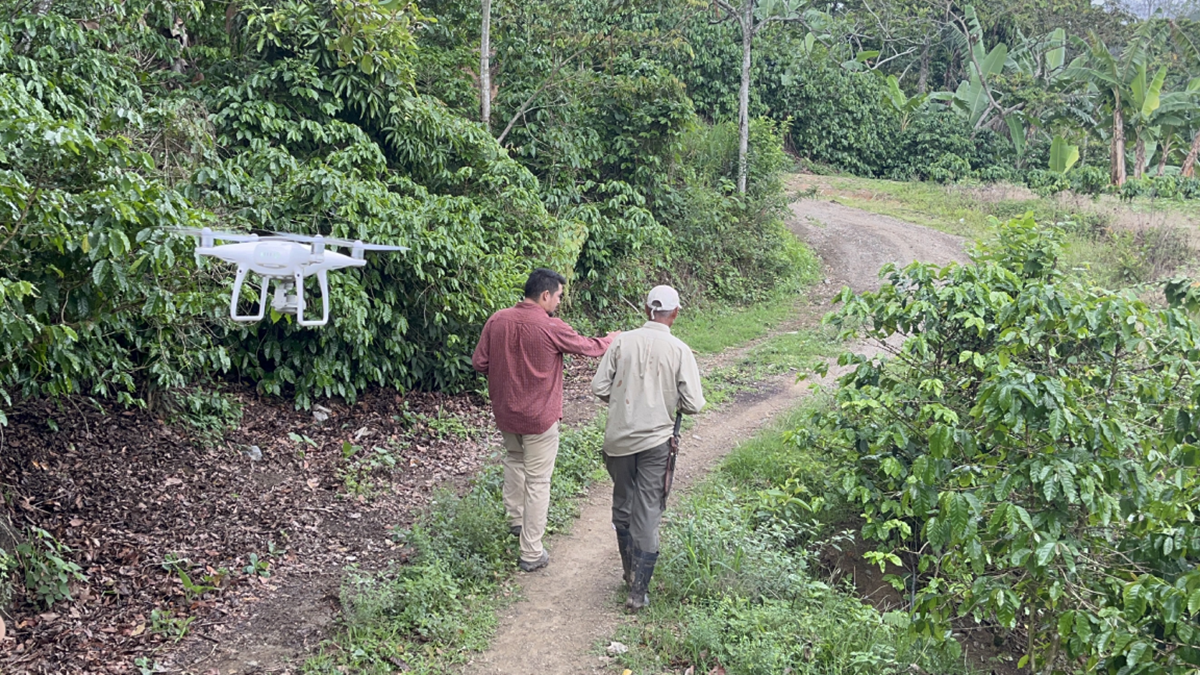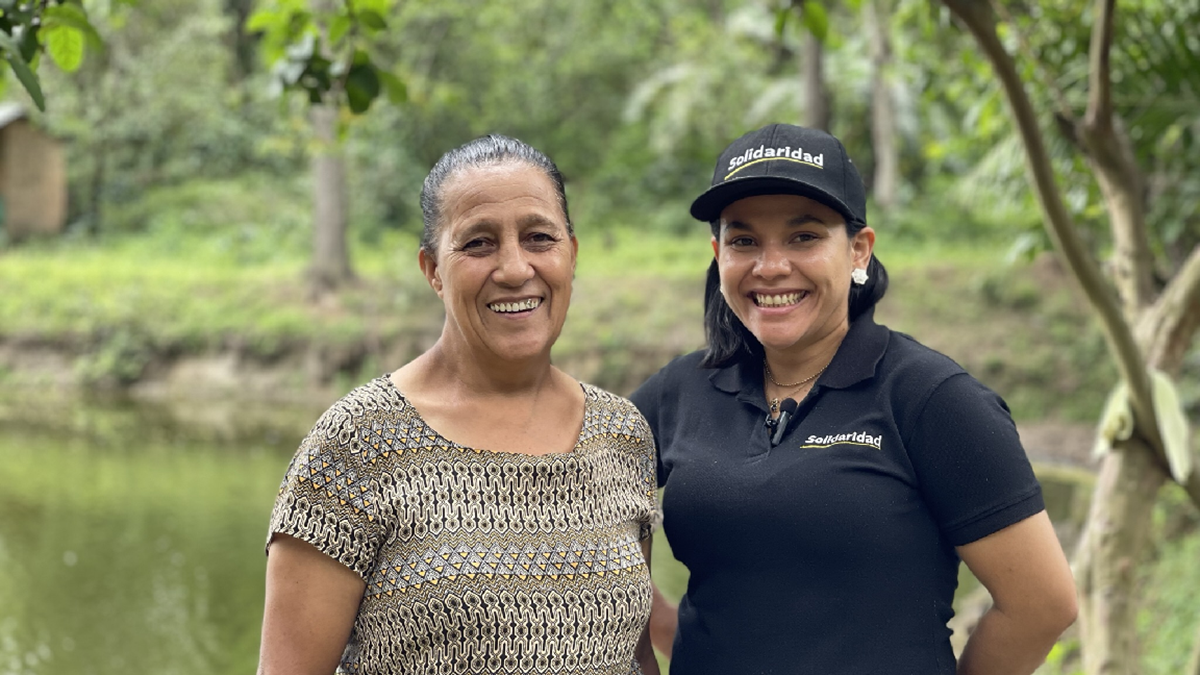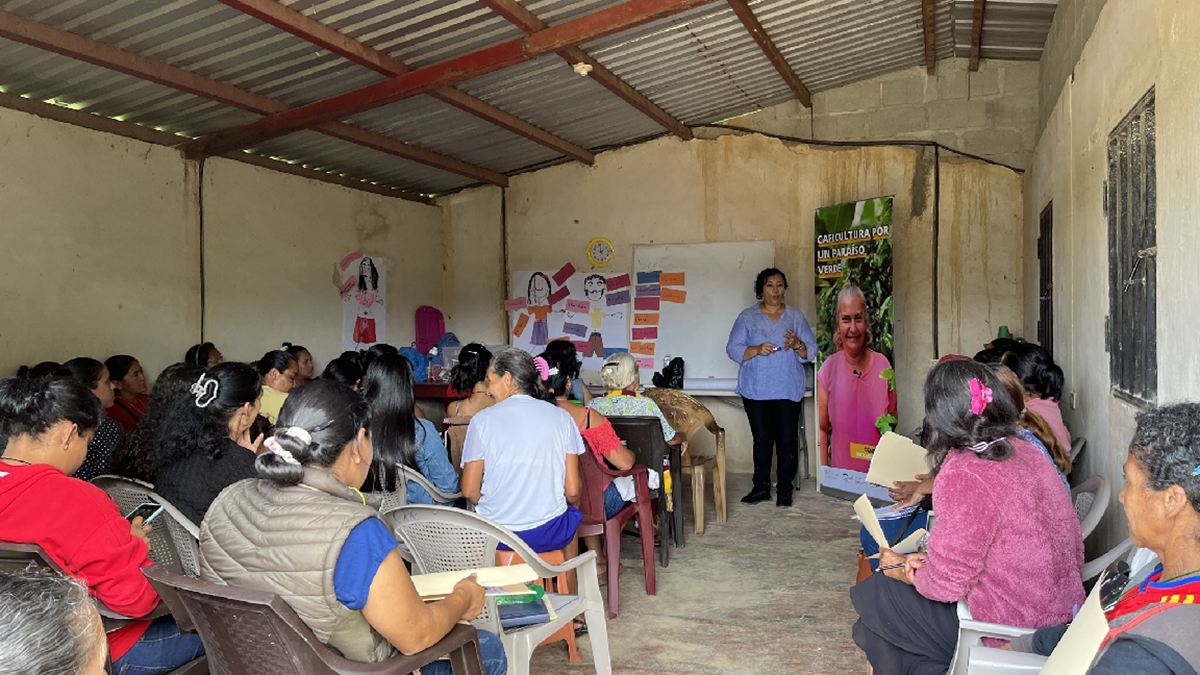Solidaridad’s technical team shows smallholders the status of their fields through an aerial view taken by a drone.
Honduran coffee is renowned for its quality. It’s the primary source of income for thousands of coffee-producing families and represents five percent of the country’s gross domestic product. Solidaridad is supporting smallholders as they work to comply with the new European Regulation and improve the sustainability of their crops while increasing their income. Caficultura por un Paraíso Verde is the result of agreements with strategic partners, including the Honduran Coffee Institute (IHCAFE), the German Cooperation Agency (GIZ), and the Honduran Association of Coffee Producers (AHPROCAFE).
How we trace the production on coffee farms
Traceability is key to complying with new due diligence regulations. Coffee farmers in the project are using the digital tool INATrace to maintain traceability and add value to their product. With complete traceability, buyers and consumers can learn more about the origin of their coffee and the processes involved, and smallholder farmers can see where their coffee ends up. Solidaridad in Honduras has already carried out coffee traceability projects with partners, including the first traceable container, as part of the programme RECLAIM Sustainability!
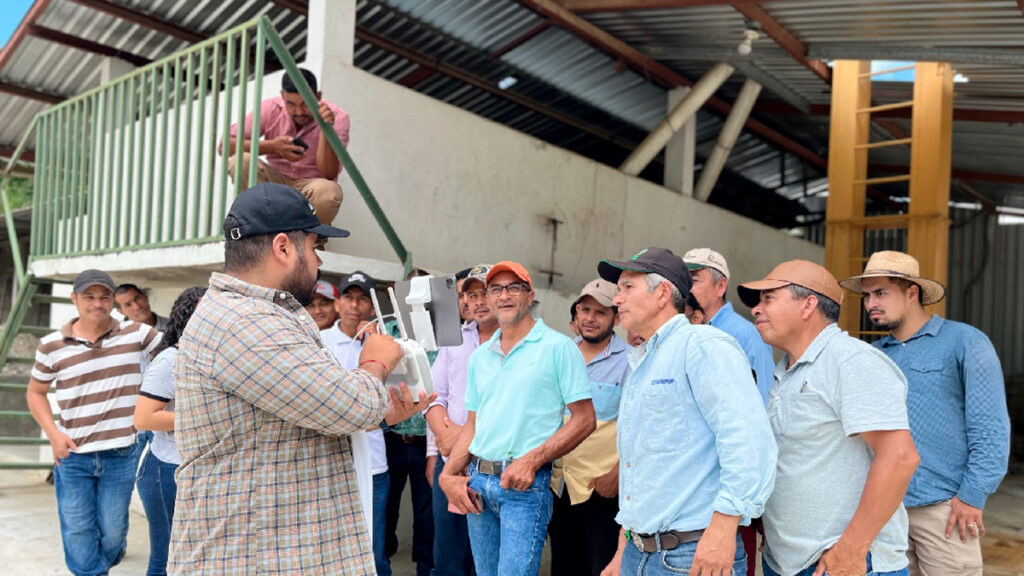
With the Caficultura por un Paraíso Verde project, Solidaridad is mapping 150 hectares to geo-reference which farm cultivates each cup of coffee produced. The goal is to guarantee transparency at each stage of the coffee supply chain.
“Our commitment as an organization is to support smallholders through new technologies, as they add value to their products, and contribute to the sustainability of value chains. This is fundamental to boosting the global economy.”
Sofia Nuñez, Country Manager of Solidaridad in Honduras
Deforestation-free coffee production
Another one of the project’s main goals is to reduce deforestation and increase forest restoration by introducing agroforestry systems that can decrease CO2 emissions and sequester carbon.
Coffee agroforestry systems improve productivity and diversify coffee farm income by incorporating different trees (timber and/or fruit trees) that provide shade for coffee crops, reduce erosion, and enrich the soil.
Farmers who implement these agroforestry systems are known as”Climate Heroes” in Solidaridad. This project improves the resilience of production systems with technical support, financing, and access to carbon markets to improve the quality of life of coffee and cocoa smallholders.
Gender inclusion is vital for sustainability
The project also provides training on gender equality and equity for women with a focus on gender roles in the household, the coffee value chain. The work aligns with the Gender Policy for the Honduran coffee sector, promoting women’s active participation in the value chain.
“I have been a coffee smallholder since 1980; when my husband got sick, I took over the farm. Although I like to plant coffee and take care of it, the biggest challenge is dividing my time between home and the farm. With this new project, I hope that everything I learn will help us grow.”
Maria Vallecillo, a Honduran coffee smallholder
Over 125 women have received training. In addition, a workshop on responsibility sharing in the family will be carried out to improve family relations and promote equal opportunities for men and women.
“Women also do agricultural labor, even if they are not landowners. We want to motivate women to get more involved in these farm activities and to actively participate in this and other projects.”
Melissa López, Solidaridad’s Gender Specialist
Working together to achieve our goals
The Caficultura por un Paraíso Verde project uses a variety of approaches to arrive at sustainable production. Solidaridad staff are currently training AHPROCAFE’s technical team, exporters, and cooperatives on the use of the INATrace digital traceability tool.
The next step is to scale up the project to other regions with smallholders. Solidaridad is committed to helping coffee smallholders improve their resilience and sustainability, add value to their coffee, and ensure equal opportunities throughout the value chain.
